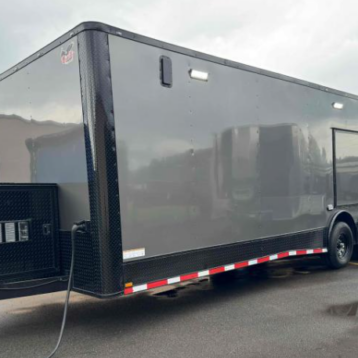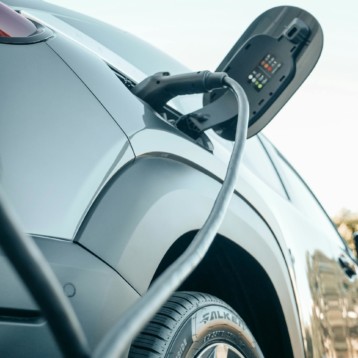It’s a fact of life that most people need their vehicles to keep their lives going. We use them to drive to work, drop the kids off at school, pick up the groceries, and simply get around. Cars are also expensive. For most people, their car will be one of the largest financial commitments they have.
There will come a time when you will need to replace your vehicle. Your vehicle may have been written off, or it may become more expensive to run and repair, which makes keeping it going untenable. In some cases, you may simply have new needs that your previous vehicle wasn’t suitable for.
However, until it’s time to replace your vehicle, it’s best to keep your car running smoothly for as long as possible. This saves you money and it can be better for the environment, as the longer you keep your vehicle running, the fewer resources are needed to create a new one.

Good Battery Care
Your battery generally has a lifespan of around eight years, but this can be affected by how well you look after it and how you use your car. If you don’t use it for long periods of time, and just leave it on the driveway or in the garage, then the battery will degrade and eventually go flat.
Jumpstarting a car with a flat battery will get it going again, but it also puts extra strain on the battery. It may also cause issues with delicate electronics in your car, such as the engine management system.
Ideally, you should drive your car at least once a week, especially in cold weather. If you know that your car will be left for a while without being driven, then consider using a trickle charger to keep it topped up.
Smooth Driving
While it’s sometimes more fun to drive a bit roughly, especially if you drive stick, smooth driving is better for your car and your wallet. Driving with your car in mind can economize your fuel usage, which is especially important when you consider recent rising fuel prices.
If you drive smoothly, your car will thank you too. It will reduce wear and tear on your car’s components, such as the steering wheel, gearbox (if you drive stick), and pedals. Your brakes will also stay in better condition.
With this in mind, you should still rev your engine fully every few hundred miles or so. This is to get rid of carbon deposits in your engine, which can cause a misfire. Do so when the oil is warm and when you’re on a quiet road, so ideally after you’ve been driving for a few minutes already.
Basic Checks and Care
As well as looking after your car when you’re driving, you should also keep on top of some basic checks and car care. Every two weeks or so, check on these components:
- Fuel
- Oil
- Coolant
- Screenwash
- Rubber (tires and wiper blades)
- Electrics
- Engine air filter
- Brakes
- Spark plug (petrol engines)
- Interior
- Exterior
- Air conditioning
By keeping on top of these basic checks, you can flag problems before they get any worse. Some issues that you spot will be easy for you to fix at home, such as topping up the fuel, oil, coolant, and screenwash in your car.
Your tires should be checked even more regularly, about every week. If your tires are balding or have any other problems, you’re at a greater risk of crashing your car. Keep your tires properly inflated, bearing in mind that under-inflated tires usually up your fuel consumption.
Checking your spark plugs is simple enough that you might be able to do it yourself. Check that your spark plugs have no signs of wear, deposits, or melting. There should also be an electrode and an insulator.
If your spark plugs are in poor condition, they need to be replaced. If they’re relatively recently installed, then your engine might have other issues. If the plug is new and there’s a large gap between the electrode and the insulator, then your engine is potentially under-performing. If you notice any of these issues, contact your mechanic.
Finally, it’s important to regularly clean your car. This doesn’t just keep it looking nice, which is reason enough to keep it clean, but it can also extend your vehicle’s life. Dirt, grit, bird droppings, and road salt all cause wear and tear on your car and damage your paintwork. This, in turn, can invite rust. Ideally, hand wash your vehicle for the best results and keep it polished.
Regular Maintenance
While you are able to keep on top of most aspects of your vehicle care, there will be times when you need to take your car to an auto mechanic. You should do this regularly, ideally at least every year, so that the mechanic can find any existing problems and fix them before they become a more expensive issue.
You should also take your car to the mechanic if you ever have cause for concern. If you’ve been in an accident or your car has broken down, then your mechanic will be able to find what has gone wrong. Otherwise, you could risk mechanical failure that causes another issue.
If during your checks or while driving, you notice that your car isn’t performing correctly, then the mechanic can help you. Often, it’s a relatively simple and cheap fix, as long as you catch it early.
Part Replacements
However, sometimes the issue is more severe. Thankfully, you can keep your car going by investing in quality part replacements. Quality part replacements save you from having to go through this again any time soon.
For example, replacing your exhaust system can boost the performance of your vehicle. You can either replace it with an exact replica or upgrade it for an extra boost. Be sure to consult a mechanic before upgrading your vehicle, so that you know that the upgrade will be beneficial and won’t cause other issues.










